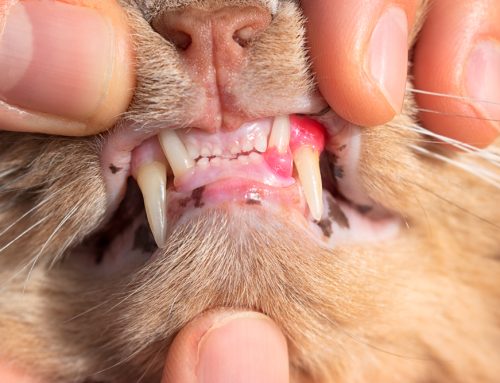You love your pet and want to do what’s best for their health and well-being. The best way to keep your pet feeling their best is to prioritize preventive care throughout their life. Scheduling regular wellness exams for your pet at Aberdeen Veterinary Clinic can decrease their health risks, including the diseases we discuss here.
Infectious diseases in pets
Your pet’s wellness care includes an appropriate vaccine schedule—most core vaccines need boosters every three years—to ensure your furry friend remains protected from various infectious diseases. Vaccines help your pet make antibodies that will fight the targeted disease if they become infected in the future. Core vaccines can prevent the following infectious diseases in cats and dogs:
- Canine adenovirus-1 (hepatitis)
- Canine distemper virus
- Canine parvovirus
- Leptospirosis
- Feline herpesvirus-1 (feline viral rhinotracheitis)
- Feline calicivirus
- Feline leukemia virus
- Canine and feline rabies
Pets whose lifestyle puts them at risk can receive additional—noncore—vaccines to protect them from diseases, including leptospirosis, Lyme disease, Bordetella, canine influenza, feline leukemia virus, and feline chlamydia.
Reproductive cancers in pets
You likely know that getting your pet spayed or neutered helps eliminate unwanted litters, reducing the pet overpopulation behavioral problems, but did you know the procedure also provides important health and behavioral benefits for pets? Studies show that spayed and neutered cats and dogs live significantly longer than their intact counterparts. By having your pet spayed or neutered, you help safeguard your furry pal from numerous reproductive cancers, including uterine, breast, and ovarian cancers in females and prostate and testicular cancers in males.
Obesity in pets
Many pet owners are unaware their pet’s weight is unhealthy, but the reality is more than 50% of pets are considered obese or overweight. An overweight or obese pet has the potential to develop many weight-related medical conditions, and maintaining your cat’s or dog’s healthy weight can add years to their life. During a routine wellness exam, our veterinarian evaluates your pet’s weight and looks for conditions that can contribute to weight gain. If your pet is overweight, our veterinarian can recommend a customized diet and exercise plan to help them reach and maintain a healthy weight.
Dental disease in pets
A pet’s dental health is closely linked to their overall health. Without proper dental care, your pet can develop dental disease, which affects approximately 80% of pets before age 3. Dental disease is caused by the bacteria left on your pet’s teeth after they eat, forming sticky plaque that quickly hardens into tartar. As dental disease progresses, tartar buildup traps oral bacteria in and around the gumline and tooth roots. Without preventive care or treatment, dental disease can lead to loose teeth, infection, and significant pain for your pet. Integrating dental hygiene into your pet’s care plan is the best way to prevent disease. Follow these tips to reduce your pet’s dental health problem risk:
- At-home routine — Brush your pet’s teeth daily using a small toothbrush and pet-friendly toothpaste.
- Dental treats — Provide appropriate dental chews for your pet that carry the Veterinary Oral Health Council (VOHC) Seal of Acceptance and prevent plaque buildup.
- Veterinary dental exams — Have your pet’s teeth and gums examined by our veterinarian annually. Dr. Fritz can look for early dental disease signs in your pet.
- Professional dental cleanings — Schedule your pet’s regular professional dental cleanings so our veterinarian can remove tartar above and below the gum line, polish abrasions on teeth surfaces, and extract diseased teeth.
Parasitic diseases in pets

Parasites, such as fleas, ticks, and mosquitoes, can cause significant health issues for pets, but year-round parasite preventives can protect dogs and cats from diseases. Protect your cat or dog from the following:
- Heartworm disease — Mosquitoes transmit heartworms, which can significantly damage your pet’s heart and lungs. A bite from a single infected mosquito can lead to disease, and infected pets who are not treated promptly can develop fatal heart failure.
- Tick-borne diseases — Ticks feed on your pet’s blood and can transmit various diseases to your pet. Tick-borne diseases can be deadly without treatment, including Lyme disease, ehrlichiosis, and Rocky Mountain spotted fever.
- Flea-borne diseases — Flea bites can cause extreme itchiness, and sores and scabs that may develop on your pet’s skin from excessive scratching. Fleas can also transmit serious diseases to your pet, including:
- Cat scratch disease
- Murine typhus
- Plague
- Tapeworms
- Mycoplasma
Routine wellness care is vital to your pet’s overall health, so schedule your pet’s annual wellness exam with our Aberdeen Veterinary Clinic team, and keep your pet happy, healthy, and disease-free







Leave A Comment